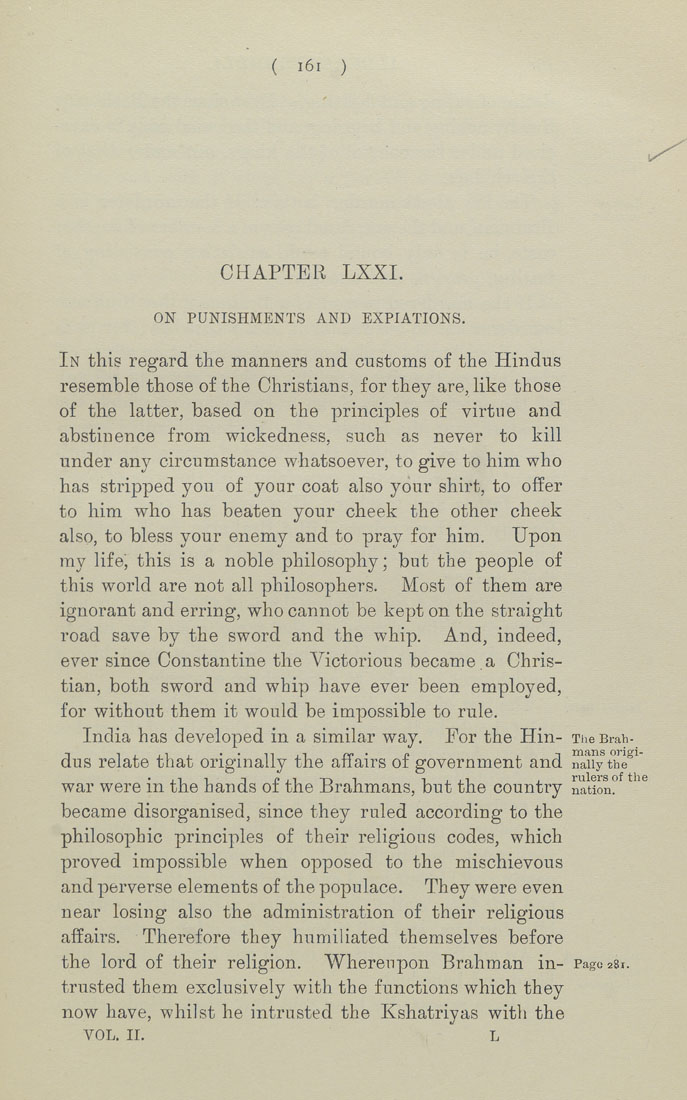Bīrūnī, Muḥammad ibn Aḥmad, Alberuni's India (v. 2)
(London : Kegan Paul, Trench, Trübner & Co., 1910.)
|
||
|
|
|
|
| Page 161 |

( I6i ) ^ CHAPTER LXXI. ON PUNISHMENTS AND EXPIATIONS. In this regard the manners and customs of the Hindus resemble those of the Christians, for they are, like those of the latter, based on the principles of virtue and abstinence from wickedness, such as never to kill under any circumstance whatsoever, to give to him who has stripped you of your coat also your shirt, to offer to him who has beaten your cheek the other cheek also, to bless your enemy and to pray for him. Upon my life, this is a noble philosophy; but the people of this world are not all philosophers. Most of them are ignorant and erring, who cannot be kept on the straight road save by the sword and the whip. And, indeed, ever since Constantine the Victorious became a Chris¬ tian, both sword and whip have ever been employed, for without them it would be impossible to rule. India has developed in a similar way. For the Hin- TueBrah- dus relate that originally the affairs of government and naify t"he war were in the hands of the Brahmans, but the country nation? became disorganised, since they ruled according to the philosophic principles of their religious codes, which proved impossible when opposed to the mischievous and perverse elements of the populace. They were even near losing also the administration of their religious affairs. Therefore they humiliated themselves before the lord of their religion. AVhereupon Brahman in- Pago 281. trusted them exclusively with the functions which they now have, whilst he intrusted the Kshatriyas with the VOL. II. L |
| Page 161 |







